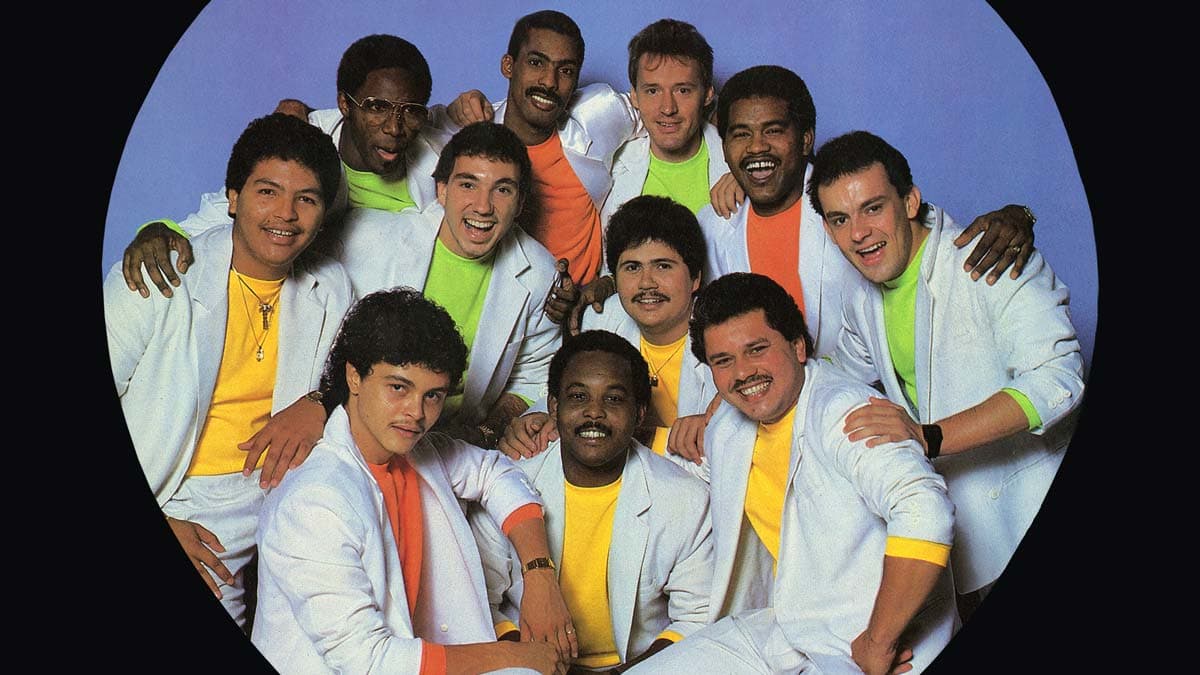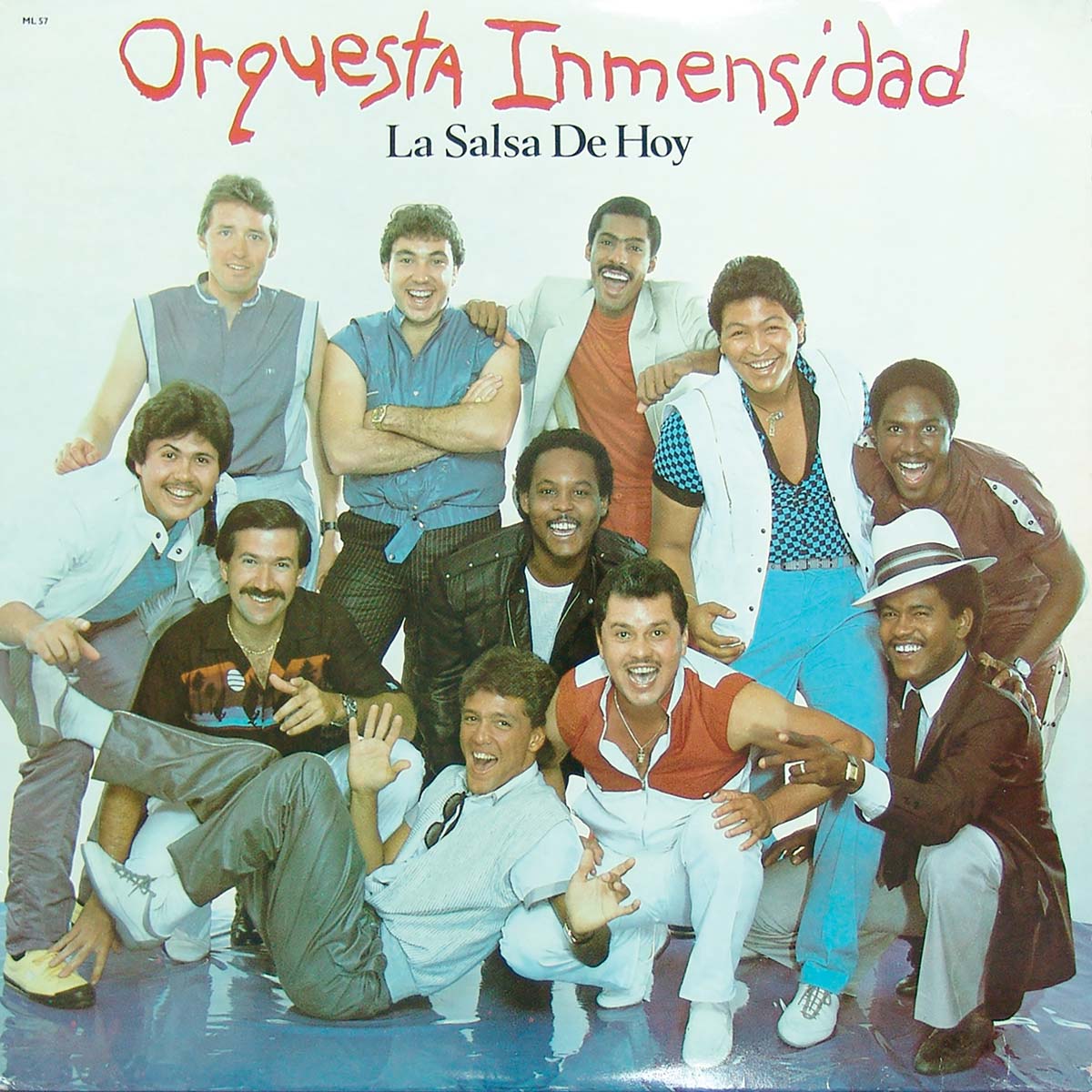
In 1980, despite the “immensity” of artists multiplying on the popular music scene, a group emerged from the din that baptized itself with the same name: Orquesta Inmensidad. The choice of names was very intentional, according to the group’s founder and director, Raúl Gallimore, who had the support of Fidel and Alfonzo Oro. Together, they gave shape to a rhythmic and contagious sound that would be their signature throughout their successful career.
As they say, “Make the road by walking.” Doing just that, Orquesta Inmensidad undertook what could be described as an experimental period. They appeared in various clubs, commanding the attention of the audience in every instance with their romantic song selection, performing them at the pace of a silky, delicate, and subtle ballad.
The band’s early vocalists were Panamanians Sócrates Lazo and Junior (Pangarita). Later the band was fronted by Rubén Yindo Rodríguez and Roberto Blades – when the group officially broke out onto the scene.
In one of their multitudinous concerts, the group shared the Dinner Key Auditorium stage in Miami with the famous Fania All Stars. Fania producer Jerry Masucci foresaw the “immensity” of these talented young artists, and decided to give them a contract in order to expand the list of artists on his label.
That was how the band’s first album came to be. “Inmensidad” was recorded in New York under the supervision of legends Johnny Pacheco and Javier Vázquez. These were definite accolades for the consecration and internationalization of “Inmensidad” as an orchestra.
Appearing on that album is the track “Ya no regreso contigo,” a song that landed high in the charts for popularity and sales, earning the band the coveted “Disco de Oro.”
This success marked the beginning of an uninterrupted series of successful productions. “Alegría” included the songs “Lágrimas,” sung by Roberto Blades, and “Lo siento mi amor,” sung by Raúl Gallimore. These hits became sanctified, especially the latter; they were considered by critics to be the first manifestation of erotic salsa. The band again won the Disco de Oro y Platino.
A total of nine albums on the market gives us a clear measure of Orquesta Inmensidad’s popularity as a band. Among them, one stands out: “La salsa de hoy,” a lyrical collection of their greatest hits. Included on the album is “El artista famoso,” written by Roberto Blades and arranged by Raúl Gallimore. This is a touching and emotional song, inspired by the idea of a singer at the end of his life who looks back nostalgically the celebrity and fame he achieved in his finest hour. Now, all he has to do is recall the echo of the applause when the lights go down. “Detalles,” written by Roberto Blades and arranged by Raúl Gallimore, was inspired by an everyday situation: a couple, over the course of time, forgets all those “little details,” and the complacency they adopt overshadows the excitement of their first years together. Later, the strength of their love and shared personal experiences drives them to work together to rekindle their love. And finally, there is “La distancia,” a classic ballad by Roberto Carlos/Erasmo Carlos that rises to a new level in salsa. This popular song has begun to creep back onto the scene, as have arrangements by Raúl Gallimore.



